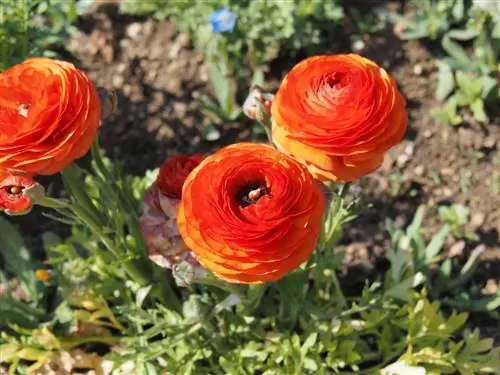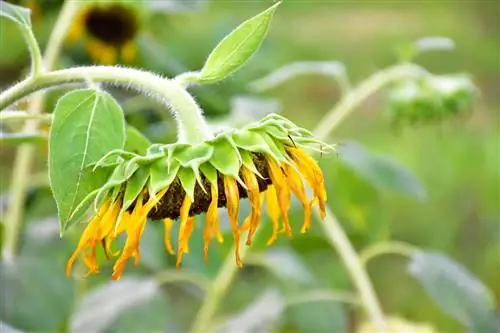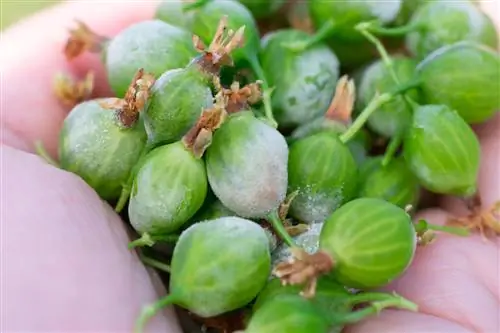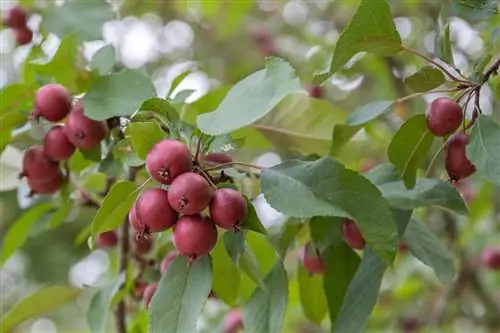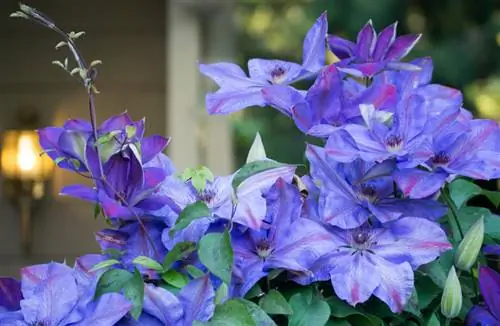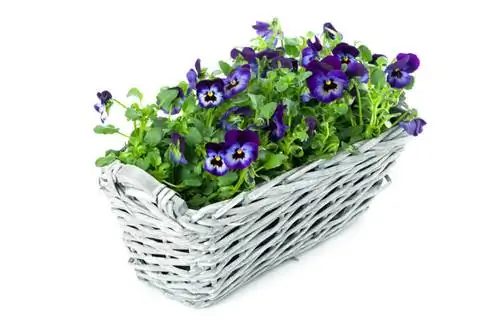- Author admin leonars@hobbygardeners.com.
- Public 2023-12-16 16:46.
- Last modified 2025-01-23 11:22.
The ranunculus, botanically Ranunculus asiaticus, is a popular early bloomer that delights us with its splendor of colors from April to June. The buttercup plant is also popular in pots as a balcony plant. Ranunculus require a partially shaded, moist location for he althy growth.
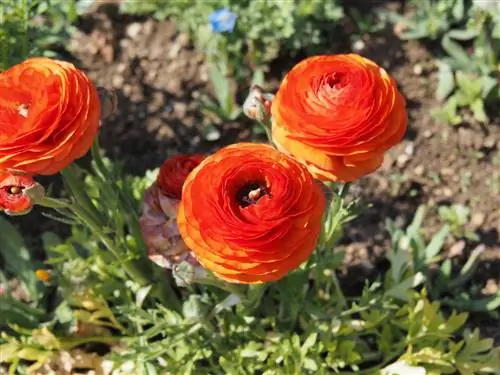
How do I recognize powdery mildew on ranunculus?
Powdery mildew appears on ranunculus through awhite, mealy coating on the tops of the leaves. Downy mildew manifests itself as yellowish spots on the leaves. There is a greyish-purple fungal lawn on the underside of the leaf that cannot be wiped off.
What causes powdery mildew on ranunculus?
The powdery mildew spores are spread by the wind from infected ranunculus. Infection with powdery mildew fungi usually occurs in warm, dry weather. When the soil around plants dries out, the plants become weakened and susceptible to powdery mildew. Downy mildew occurs on ranunculus due to excessive moisture. The spores are transmitted to the plants through splashing water from the soil. If powdery mildew spreads to plants without treatment, flowers are usually missing and the plants can die.
How can I combat powdery mildew on ranunculus?
If powdery mildew has only spread to a few plants, you shouldremove these ranunculus immediately This will reduce the risk of infection for the other plants. Then mulch the soil with at least 5 cm of grass clippings or shredded material. In the organic garden you should avoid chemical sprays and use home remedies. You can combat powdery mildew by spraying a milk-water mixture. Garlic tea helps against downy mildew.
How can I prevent mildew?
Because ranunculus often become infected with mildew, preventionthrough care measures is particularly important. Space the tubers 10cm apart. This allows the leaves to dry better after rain or morning dew. In dry conditions, you must water the soil around the ranunculus regularly. Avoid a fertilizer high in nitrogen because it softens the leaves. This makes it easier for pathogens to penetrate.
Tip
Prevention with field horsetail tea
For ranunculus, it makes sense to add field horsetail tea to the irrigation water as a preventive measure. The silica contained strengthens the leaves against the penetration of pathogens. To do this, boil 150 grams of dried field horsetail with 1 liter of water for at least 20 minutes. After straining, you can add this to the irrigation water.

